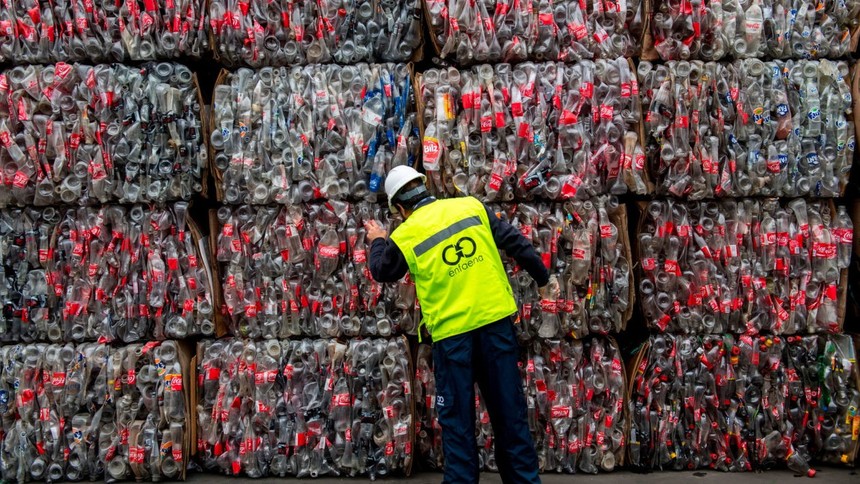NEWS CENTER
|
Why Bioplastics Will Not Solve the World
A worker examines plastic bottles at a recycling center in Santiago, Chile. MARTIN BERNETTI/AFP VIA GETTY IMAGES Bioplastics are being touted by industry marketers as the solution to plastics pollution. But the idea that bottles and packaging made of plant-based material can simply be discarded and then break down and disappear is false – recycling and reuse are the only strategies that can work. BY JIM ROBBINS • AUGUST 31, 2020 ---------------------------------------------------------------------------------------------------------------------------------- Coca-Cola calls it the PlantBottle — a new kind of recyclable plastic container, 30 percent of which is made from sugar cane and other plants, with the remaining 70 percent made from traditional oil-based plastic. The company says that PlantBottle packaging now accounts for nearly a third of its North American bottle volume and seven percent globally. Does the PlantBottle mean the giant soft drink company has cracked one of the world's most serious environmental problems, the choking of the world with oil-based plastics that never completely break down and disappear? Hardly. Though companies like Coca-Cola and Pepsi are under public pressure to solve the problem of plastic pollution, they have so far been unable to find a material or method as cheap and effective as single-use plastic. Bioplastics, which make up part of Coke's PlantBottle, have been touted as an important solution to the world's plastic pollution problem. But despite a growing push in recent years to come up with an organic plastic that satisfies product needs and, after use, becomes part of nature again, making bioplastics that are both cheap and effective has posed a major challenge. “The concept that we could use it, throw it away, and it doesn't matter where you throw it, and it's going to safely disappear, that does not exist,” said Ramani Narayan, a professor at the School of Packaging at Michigan State University. “Nobody could engineer something like that, not even nature.” Instead, many experts believe the solution to plastic waste mainly lies not in developing better bioplastics, but in overhauling the world’s economy to recycle far-greater quantities of plastic than currently are being reused. A just-released two-year study called Breaking the Plastic Wave by Pew Charitable Trusts and SYSTEMIQ, found that despite the efforts of industry, governments, and NGOs, the plastic problem is getting much worse. |



